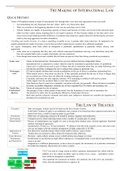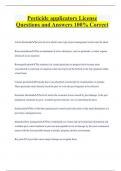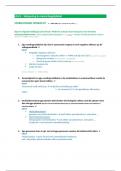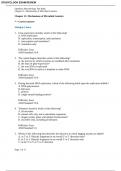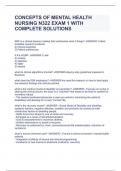Summary
Complete samenvatting Principles and Foundations of International Law
- Module
- Institution
- Book
This is my complete summary of the book, the working group and the lectures of the master course principles and foundations of international law from the master's international trade and investment law at the uva. I got an 8.5 in this course
[Show more]
